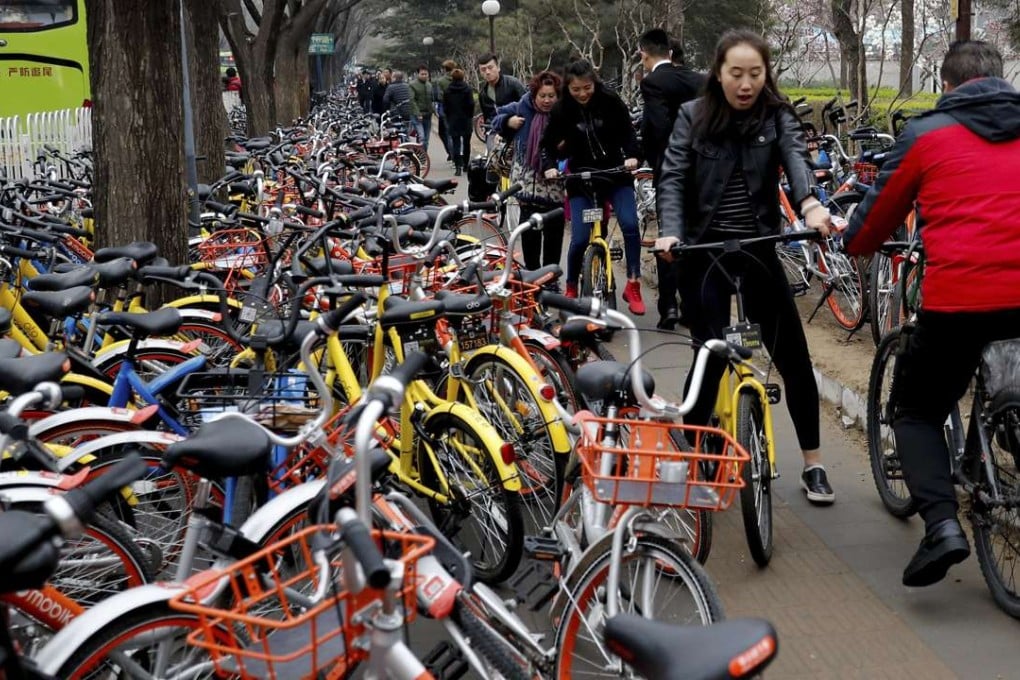Why China’s bike-sharing boom is causing headaches
Illegal parking, vandalism and traffic violations are rife in cities designed more for cars than bicycles

China’s bike-sharing boom has put millions of new bicycles on city streets now mainly designed for cars, and that’s causing problems in a country previously known as the “kingdom of bicycles”.
The mainland is now home to more than 40 dockless shared-bike start-ups whose smartphone apps give people access to a network of bikes for as little as one yuan (14.5 US cents) an hour. The charges are paid via digital wallets and GPS-tracking devices on the bikes mean they can be left anywhere at the end of a ride.
The biggest operator, Ofo, has 2.2 million bikes in 43 mainland cities, according to Reuters.
Mobike, the second-biggest, officially launched its first service, in Shanghai, just a year ago. It now has more than 1 million bicycles on the mainland in 33 cities, according to Xinhua, and plans to expand to more than 100 cities, at home and abroad, by the end of the year.
But while the bike-sharing apps are convenient for users, the industry is giving many local governments daily headaches. Problems such as illegal parking remain unanswered, and some experts say that’s largely because many cities were not designed to be bike-friendly.